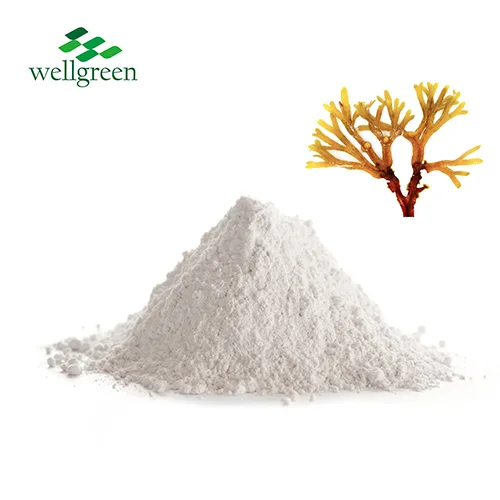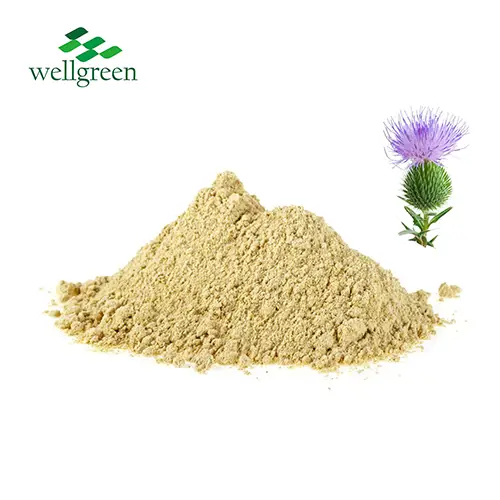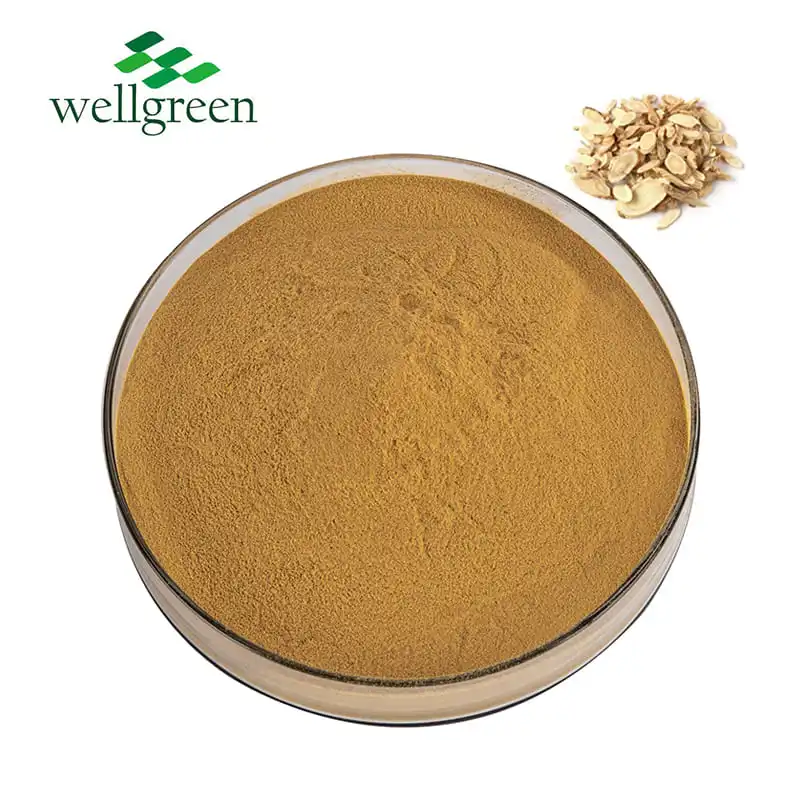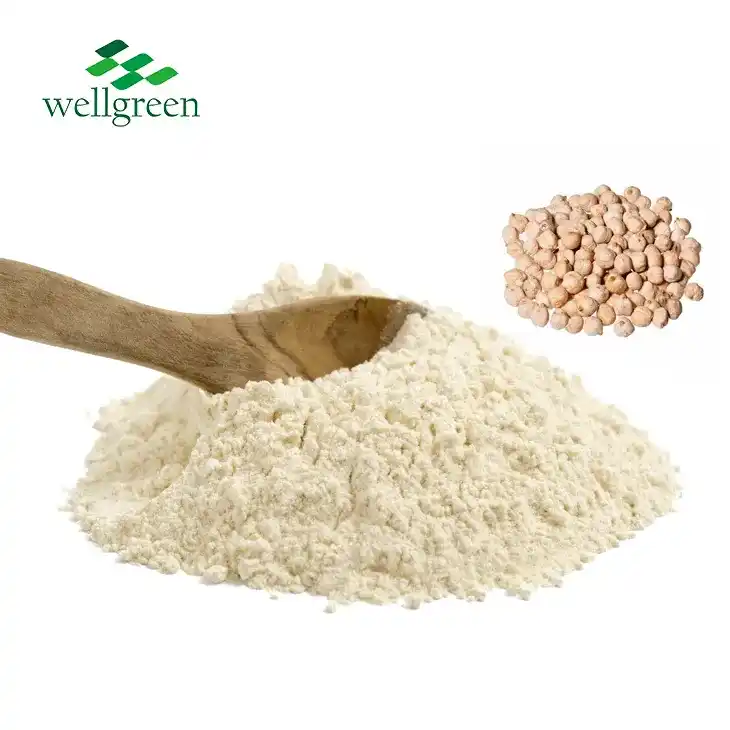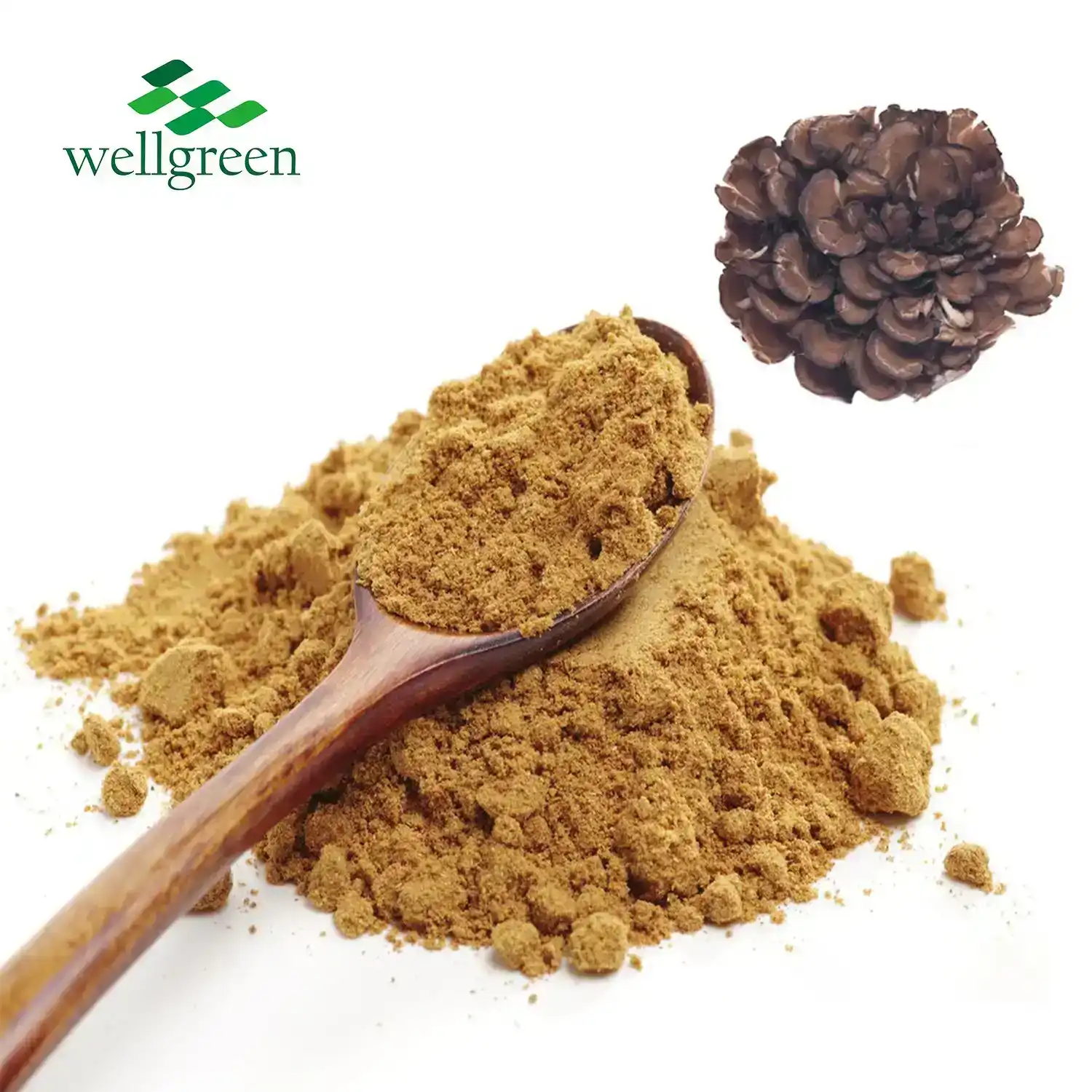Pumpkin Powder Nutrition: Vitamins, Fiber, and Antioxidants
2025-10-14 15:48:46
Pumpkin powder is a nutrient-dense superfood that packs a powerful punch of vitamins, minerals, and antioxidants. This versatile ingredient, derived from dehydrated pumpkin flesh, offers a concentrated source of essential nutrients found in fresh pumpkins. Rich in vitamins A and C, potassium, and dietary fiber, pumpkin powder provides numerous health benefits. Its high antioxidant content, including beta-carotene and lutein, supports overall well-being and may help protect against various diseases. Whether you're looking to boost your nutrient intake or add a flavorful twist to your recipes, organic pumpkin powder is an excellent addition to a balanced diet.

A Rich Source of Vitamin A, Vitamin C, and Potassium
Vitamin A: Supporting Vision and Immune Function
Pure pumpkin powder is an exceptional source of vitamin A, a crucial nutrient for maintaining healthy vision, supporting immune function, and promoting cell growth. Just a small amount of pumpkin powder can provide a significant portion of your daily vitamin A requirements. This essential vitamin plays a vital role in maintaining the health of your eyes, skin, and mucous membranes. Regular consumption of pumpkin powder may help reduce the risk of night blindness and other vision-related issues.
Vitamin C: Boosting Immunity and Skin Health
Another noteworthy nutrient found in abundance in pumpkin powder is vitamin C. This powerful antioxidant is essential for supporting a robust immune system, promoting collagen production, and protecting cells from oxidative stress. The vitamin C content in pumpkin powder can help your body fight off infections, reduce inflammation, and contribute to healthier, more radiant skin. Incorporating organic pumpkin powder into your diet is an excellent way to boost your vitamin C intake naturally.
Potassium: Maintaining Heart Health and Fluid Balance
Pumpkin powder is a rich source of potassium, an essential mineral that plays a crucial role in maintaining proper heart function, regulating blood pressure, and supporting muscle and nerve health. Adequate potassium intake is associated with a reduced risk of cardiovascular diseases and stroke. By adding pumpkin powder to your meals, you can easily increase your potassium consumption, contributing to better overall health and well-being.
How Does Its Soluble and Insoluble Fiber Support Digestion?
Soluble Fiber: Promoting Gut Health and Cholesterol Management
Pumpkin powder contains a significant amount of soluble fiber, which dissolves in water to form a gel-like substance in your digestive tract. This type of fiber offers numerous benefits for digestive health and overall well-being. Soluble fiber acts as a prebiotic, nourishing the beneficial bacteria in your gut and promoting a healthy microbiome. Additionally, it can help regulate blood sugar levels by slowing down the absorption of glucose, making it particularly beneficial for individuals managing diabetes. The soluble fiber in pumpkin powder may also aid in lowering cholesterol levels by binding to cholesterol particles and preventing their absorption.
Insoluble Fiber: Supporting Regular Bowel Movements
In addition to soluble fiber, pumpkin powder is an excellent source of insoluble fiber. This type of fiber doesn't dissolve in water and instead adds bulk to your stool, promoting regular bowel movements and preventing constipation. Insoluble fiber helps move waste through your digestive system more efficiently, reducing the risk of digestive issues and promoting overall gut health. By incorporating pure pumpkin powder into your diet, you can increase your intake of both soluble and insoluble fiber, supporting optimal digestive function.
Balancing Fiber Intake for Optimal Digestive Health
The combination of soluble and insoluble fiber in pumpkin powder provides a balanced approach to supporting digestive health. While soluble fiber helps regulate digestion and nutrient absorption, insoluble fiber ensures smooth passage of waste through the intestines. This synergistic effect can help prevent common digestive issues such as bloating, constipation, and irregular bowel movements. By adding organic pumpkin powder to your meals or smoothies, you can easily boost your overall fiber intake and promote a healthier digestive system.

The Role of Antioxidants like Beta-Carotene and Lutein
Beta-Carotene: A Powerful Antioxidant and Precursor to Vitamin A
Pumpkin powder is renowned for its high content of beta-carotene, a potent antioxidant that gives pumpkins their vibrant orange color. As a precursor to vitamin A, beta-carotene is converted into this essential nutrient by the body as needed. The antioxidant properties of beta-carotene help protect cells from damage caused by free radicals, potentially reducing the risk of chronic diseases and certain types of cancer. Regular consumption of pumpkin powder can significantly boost your intake of this valuable antioxidant, supporting overall health and well-being.
Lutein: Supporting Eye Health and Cognitive Function
Another important antioxidant found in pumpkin powder is lutein, a carotenoid known for its beneficial effects on eye health. Lutein accumulates in the retina, where it helps filter harmful blue light and protects against oxidative damage. This antioxidant has been associated with a reduced risk of age-related macular degeneration and cataracts. Recent research also suggests that lutein may play a role in supporting cognitive function and brain health. By incorporating organic pumpkin powder into your diet, you can increase your lutein intake and potentially safeguard your vision and cognitive abilities.
Synergistic Effects of Multiple Antioxidants
The combination of various antioxidants in pumpkin powder, including beta-carotene, lutein, and vitamin C, creates a powerful synergistic effect. These compounds work together to neutralize harmful free radicals, reduce oxidative stress, and support cellular health throughout the body. The diverse array of antioxidants in pure pumpkin powder may offer more comprehensive protection against oxidative damage compared to isolated antioxidant supplements. By consuming pumpkin powder regularly, you can harness the benefits of these natural antioxidants and support your body's defense mechanisms against various health challenges.
Conclusion
Pumpkin powder is a nutritional powerhouse, offering a concentrated source of essential vitamins, minerals, fiber, and antioxidants. Its rich in vitamin A, vitamin C, and potassium support various bodily functions, while its balanced fiber profile promotes optimal digestive health. The antioxidants in pumpkin powder, particularly beta-carotene and lutein, provide powerful protection against oxidative stress and support overall well-being. By incorporating organic pumpkin powder into your daily routine, you can easily boost your nutrient intake and enjoy the numerous health benefits this versatile superfood has to offer.
Contact Us
Looking for high-quality pumpkin powder for your products? Contact Xi'an Wellgreen, your trusted pumpkin powder manufacturer and supplier. Please email us at wgt@allwellcn.com for more information on our organic pumpkin powder and pure pumpkin powder options.
References
1. Johnson, E. J. (2014). Role of lutein and zeaxanthin in visual and cognitive function throughout the lifespan. Nutrition Reviews, 72(9), 605-612.
2. Rao, A. V., & Rao, L. G. (2007). Carotenoids and human health. Pharmacological Research, 55(3), 207-216.
3. Slavin, J. L. (2013). Fiber and prebiotics: mechanisms and health benefits. Nutrients, 5(4), 1417-1435.
4. Tang, G. (2010). Bioconversion of dietary provitamin A carotenoids to vitamin A in humans. The American Journal of Clinical Nutrition, 91(5), 1468S-1473S.
5. Wang, X., Ouyang, Y., Liu, J., Zhu, M., Zhao, G., Bao, W., & Hu, F. B. (2014). Fruit and vegetable consumption and mortality from all causes, cardiovascular disease, and cancer: systematic review and dose-response meta-analysis of prospective cohort studies. BMJ, 349, g4490.
6. Ziegler, R. G. (1989). A review of epidemiologic evidence that carotenoids reduce the risk of cancer. The Journal of Nutrition, 119(1), 116-122.

